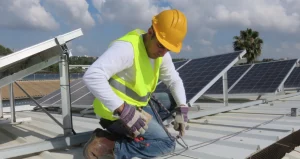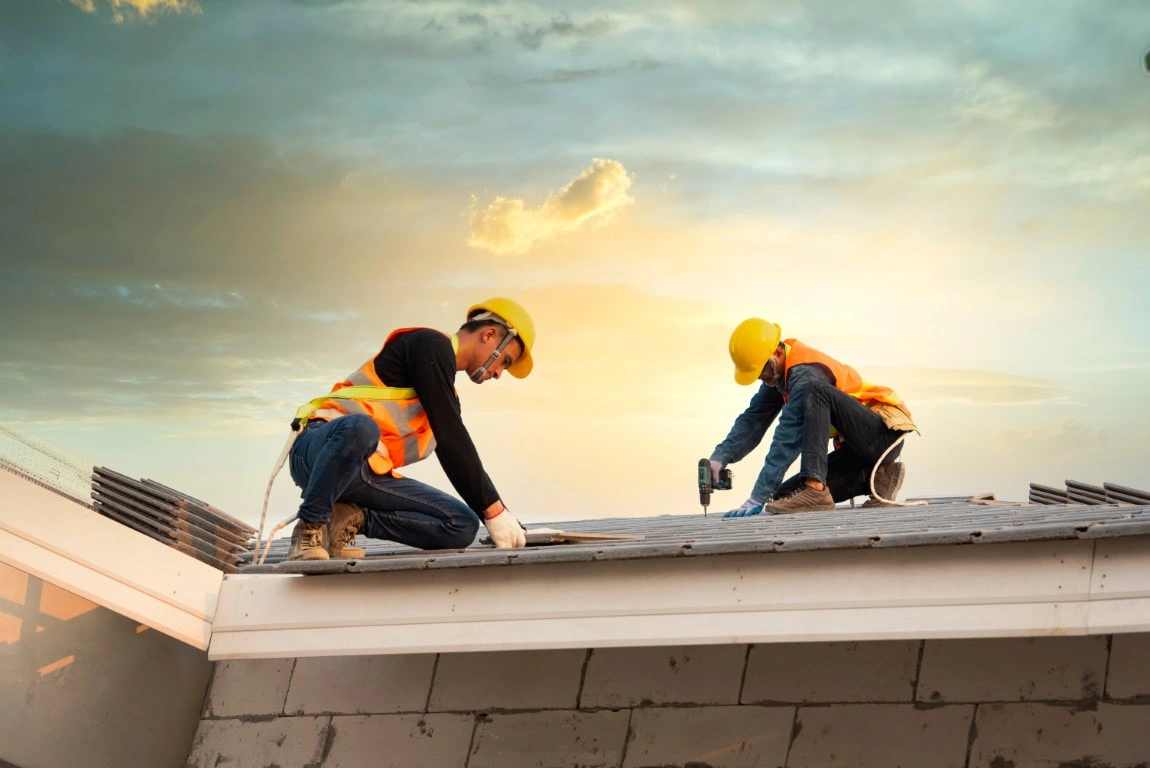In the fierce arena of construction, firms can experience significant advantages from understanding the benefits of roof maintenance. Regular checks and repairs not only extend the lifespan of the building but also reduce future repair costs, creating substantial savings over time. This proactive approach not only protects vital assets but also enhances safety, significantly lowering the risk of accidents on site. By exploring these benefits, businesses can appreciate how prioritizing roof maintenance is essential for sustaining long-term health and operational efficiency in today’s competitive market. What other underrated aspects of roof care could similarly enhance a firm’s revenue and streamline its operations?
Key Takeaways
- Regular roof maintenance extends the lifespan, reducing the frequency of expensive replacements.
- Proactive inspections and repairs prevent major structural failures and ensure safety.
- Maintained roofs enhance a property’s aesthetic and increase its market value.
- Effective maintenance strategies lead to cost savings through improved energy efficiency and reduced repair needs.
- Commitment to regular upkeep reflects positively on a company’s reliability and environmental responsibility.
Enhancing Roof Longevity
Regular maintenance is essential for enhancing the longevity of roofing structures. For construction companies, adhering to a schedule of meticulous inspections and timely repairs can greatly extend roof life. This practice not only preserves the structural integrity but also fosters a sense of responsibility and community among stakeholders. Committing to ongoing care guarantees that roofing assets remain robust and functional, reinforcing the company’s reputation for reliability and thoroughness.

Cost Savings Over Time
Investing in systematic roof maintenance can lead to substantial cost savings for construction companies over time. The benefits of roof maintenance are not just theoretical but measurable and considerable.
- Reduced repair costs: Preventative maintenance minimizes the need for expensive repairs.
- Extended roof lifespan: Regular upkeep can considerably extend a roof’s serviceable life.
- Lower energy bills: Well-maintained roofs improve insulation, reducing heating and cooling costs.
- Enhanced asset value: Maintained roofs increase property value.
- Predictable budgeting: Regular maintenance helps forecast and manage maintenance budgets more effectively.
Improving Safety Standards
Ensuring the structural integrity of roofs is essential for enhancing on-site safety in construction environments. Regular maintenance identifies potential hazards, preventing accidents related to structural failures. This proactive approach not only safeguards workers but also fosters a sense of security, promoting a collective responsibility towards maintaining a safe workspace. Such standards are vital for construction companies committed to excellence and worker well-being.
Boosting Property Value
Through diligent roof maintenance, construction companies can greatly enhance the market value of their properties. The benefits of roof maintenance are substantial in maintaining a property’s allure and functionality.
- Enhanced Aesthetic Appeal: Attracts potential buyers.
- Longevity of Structure: Reduces need for premature replacements.
- Improved Energy Efficiency: Lowers utility costs.
- Preventative Damage Control: Minimizes repair expenses.
- Increased Buyer Confidence: Assurance of a well-maintained property.
Environmental Sustainability Advantages
While boosting property value through roof maintenance certainly appeals to construction companies, there’s an equally important aspect worth considering: the environmental sustainability advantages. Regular maintenance reduces material waste by extending roof life, decreases energy consumption through improved insulation, and supports eco-friendly practices by integrating sustainable materials. This commitment not only preserves natural resources but also fosters a community ethos of responsibility and care.
Frequently Asked Questions
How Often Should Roof Inspections Be Scheduled?
Roof inspections should be scheduled biannually, with additional checks following severe weather events. Regular assessments help identify potential issues early, ensuring longevity and performance while preventing costly repairs and maintaining safety standards.
What Are Common Signs of Needing Immediate Roof Repair?
Common signs indicating immediate roof repair include missing or damaged shingles, visible leaks or water stains inside the building, sagging areas, and excessive granule loss on shingles, signaling advanced wear and potential failure.
Can Roof Maintenance Affect Insurance Premiums for Construction Companies?
Yes, regular roof maintenance can positively impact insurance premiums for construction companies by demonstrating reduced risk exposure, potentially leading to lower insurance costs and more favorable terms from insurance providers.
Are There Specific Maintenance Needs for Different Roofing Materials?
Yes, different roofing materials require specific maintenance approaches. For instance, metal roofs need regular inspections for rust and sealant integrity, while asphalt shingles benefit from debris removal and periodic granule check-ups.
How Does Weather Impact Roof Maintenance Schedules?
Weather considerably influences roof maintenance schedules, necessitating adjustments based on climatic conditions. Frequent inspections are essential in regions experiencing severe weather, ensuring timely repairs to mitigate damage and maintain structural integrity.
Conclusion
To summarize, diligent roof maintenance is imperative for construction companies aiming to optimize the longevity of their structures while curtailing future repair expenses. Such practices greatly heighten safety standards, augment property values, and contribute to environmental sustainability. By adhering to these maintenance strategies, companies not only demonstrate a commitment to operational excellence but also foster a sense of responsibility within the community, thereby enhancing their reputation and trustworthiness among stakeholders.
Also Read: Data Encryption Best Practices for Tech Support Centers




